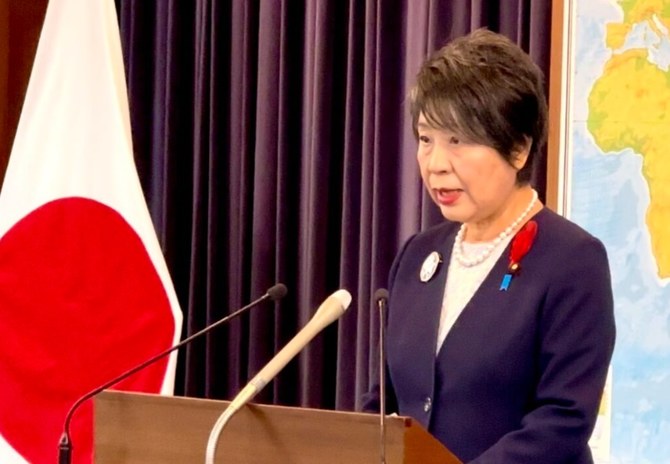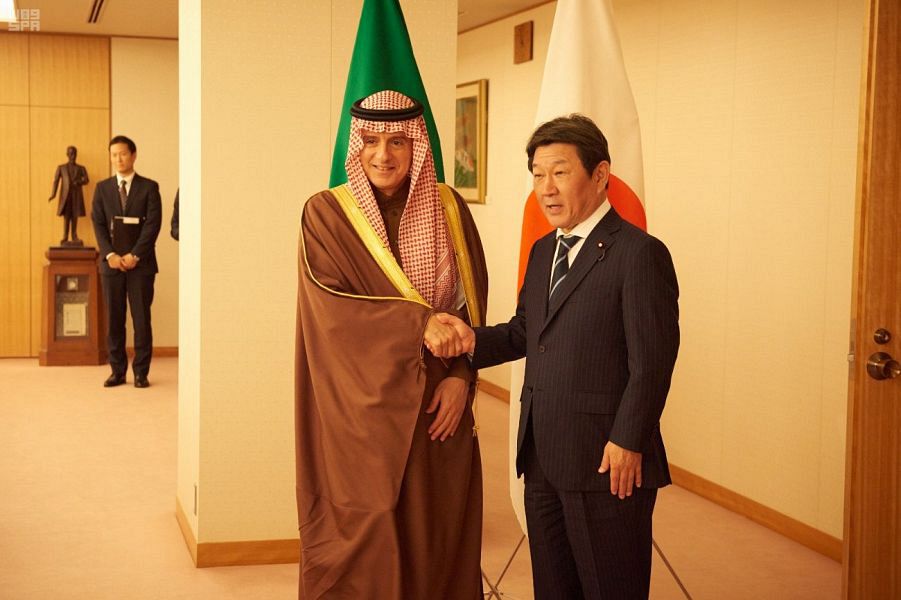
This year marks the 100th anniversary of diplomatic relations between Japan and Turkiye
The two countries have a historically friendly relationship
TOKYO: Japan’s Foreign Minister Kamikawa Yoko is scheduled to visit Turkiye on January 15 on the heels of a European tour and will meet her Turkish counterpart, Hakan Fidan, the Foreign Ministry in Tokyo said.
This year marks the 100th anniversary of diplomatic relations between Japan and Turkiye. The two countries have a historically friendly relationship that goes back to the Ertugrul shipwreck incident off the coast of Wakayama Prefecture in 1890 when the Japanese rescued many Turkish citizens.
Japan and Turkiye mutually waive visas for short-term stays, but this agreement is seen as problematic for the Turkish government because many Turkish Kurds apply for refugee status in Japan, claiming “discrimination and persecution” in their homeland.
Although few are granted refugee status, and many, according to media reports, remain in Japan illegally, this situation is seen as “disadvantageous” to the visa agreement by the Turkish Ambassador to Japan, Korkut Güngen.
In a recent interview with Sankei newspaper, he said that all citizens of Turkiye, including Kurds, are guaranteed human rights. “There are elected members of Kurdish descent in the parliament, and Kurdish language, education, and cultural activities are now possible,” the Ambassador said.
The problem of the Kurds has also presented the Japanese authorities with difficulties. The Turkish Kurdish ethnic minority is concentrated in Kawaguchi City in Saitama Prefecture. Out of approximately 6,000 Turkish nationals in the country, approximately 2,000 Kurds live around Kawaguchi City. Riots were reported there in July of last year after about 100 Kurds gathered at a hospital after an attempted murder.
The Turkish government designates domestic Kurdish groups as “supporters of terrorist organizations for funding the illegal armed organization Kurdistan Workers’ Party (PKK).”
Ambassador Güngen said in the interview with Sankei: “The PKK is aiming for secession and independence. They are carrying out terrorist activities. No country in the world, including Japan, can tolerate such groups. I have known for a long time that PKK-related groups are active in Japan, and I have conveyed the information to the Japanese authorities.”
“I know that they have repeatedly applied for refugee recognition in Japan, but recognition is ultimately the authority of the Japanese authorities,” the Ambassador said.









